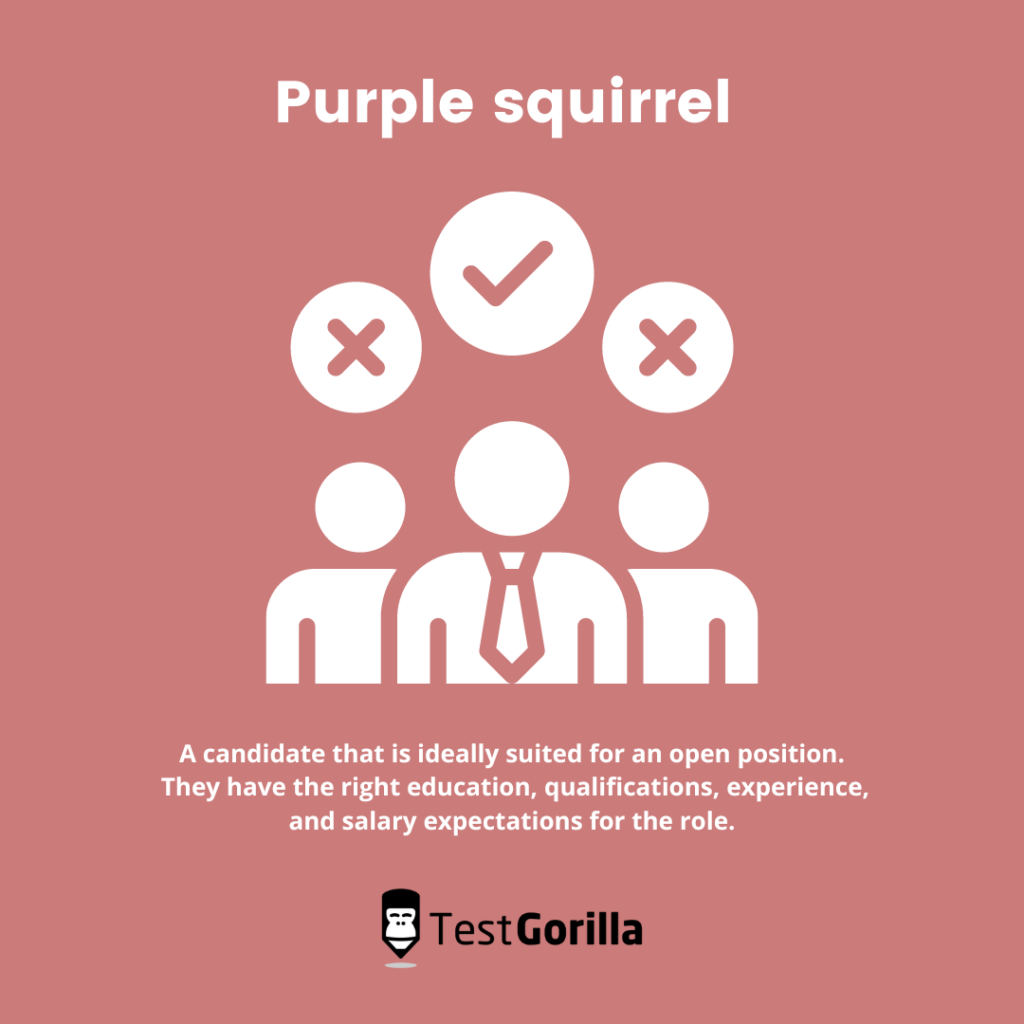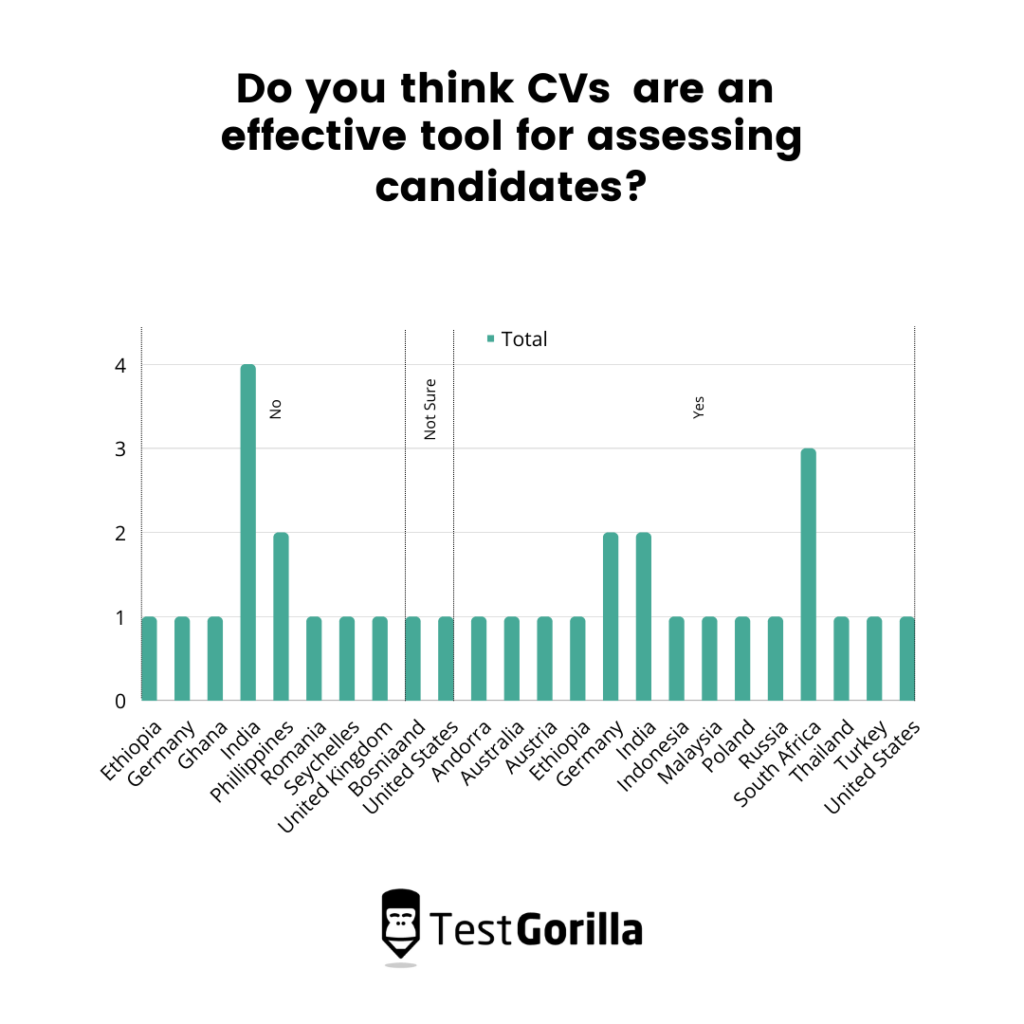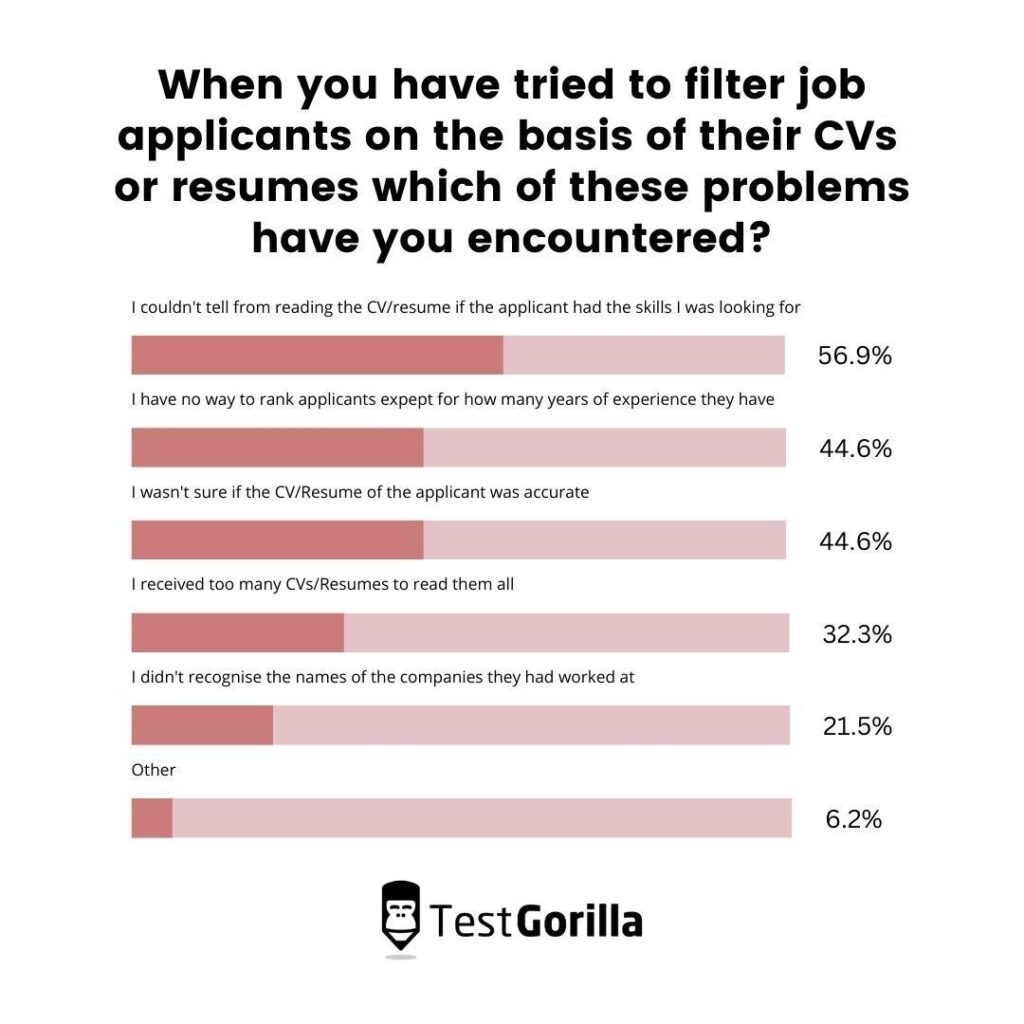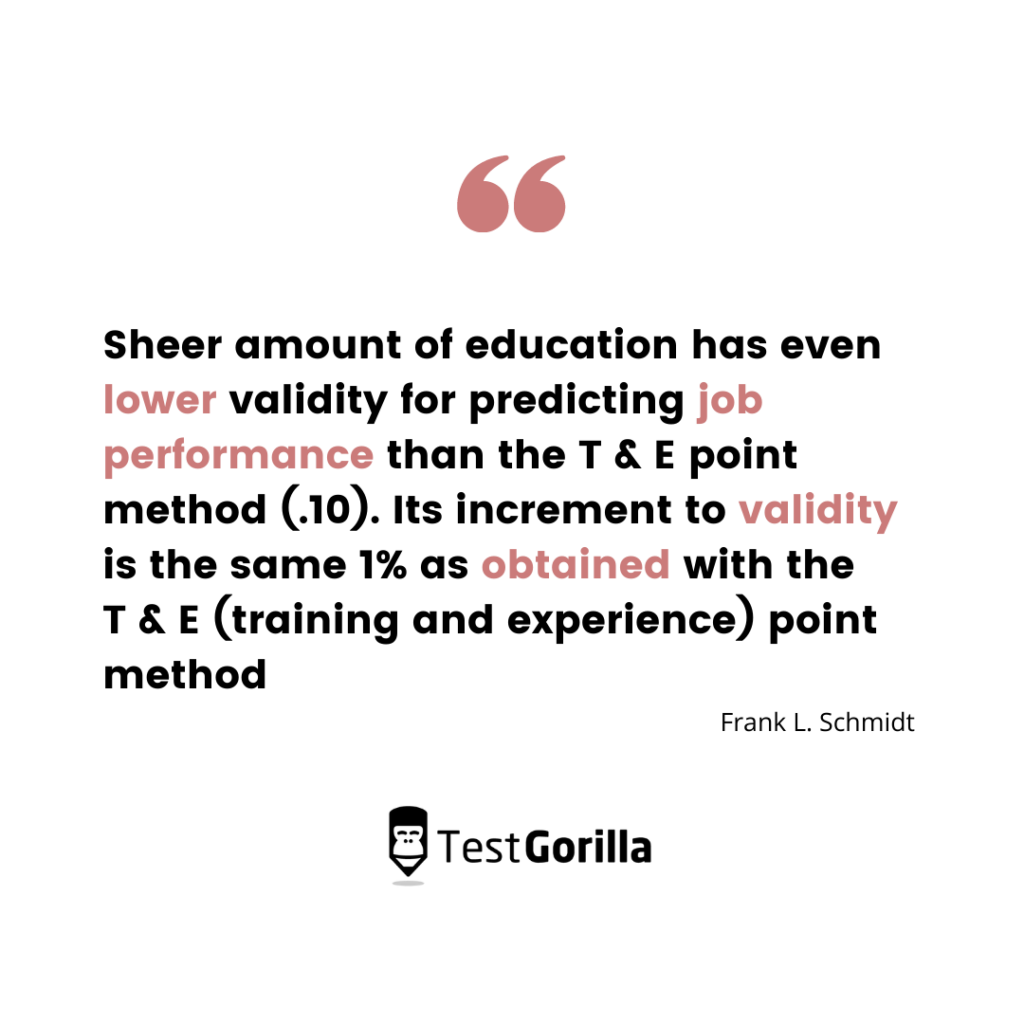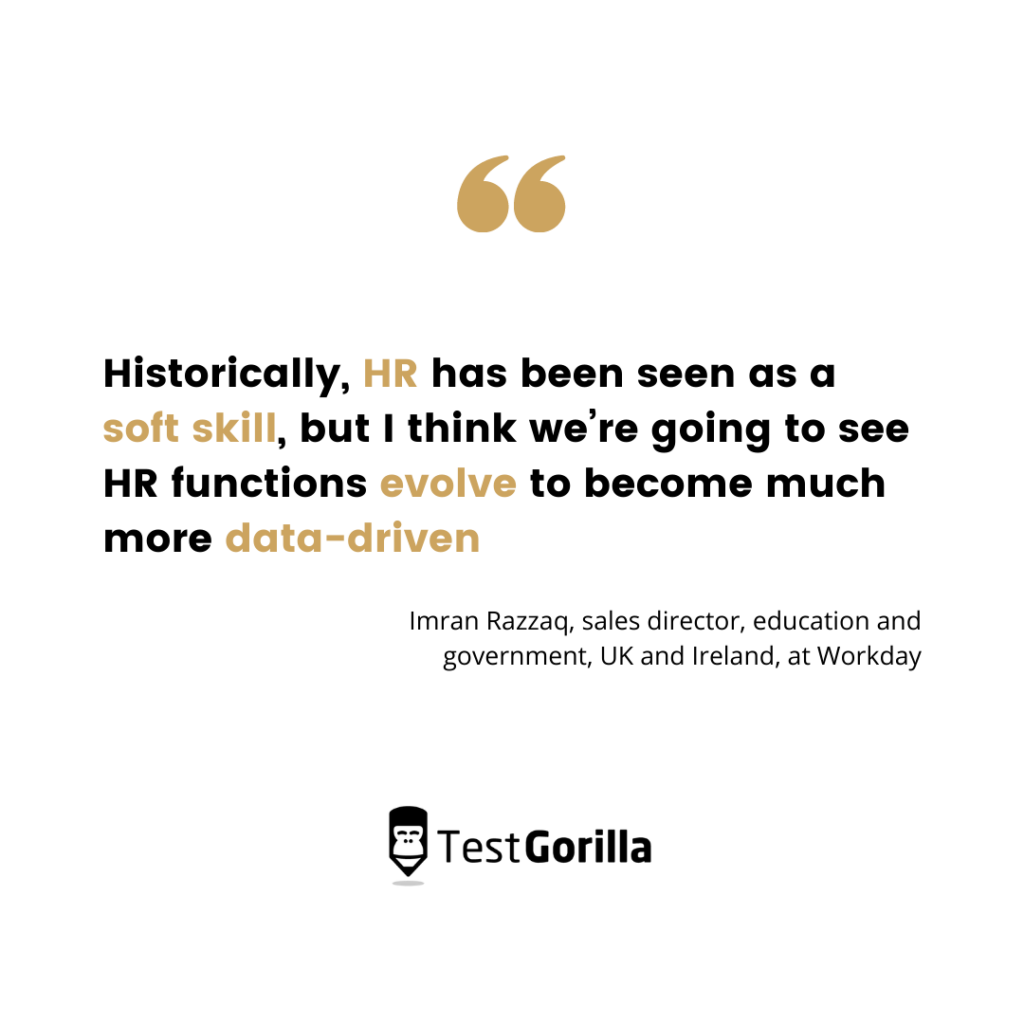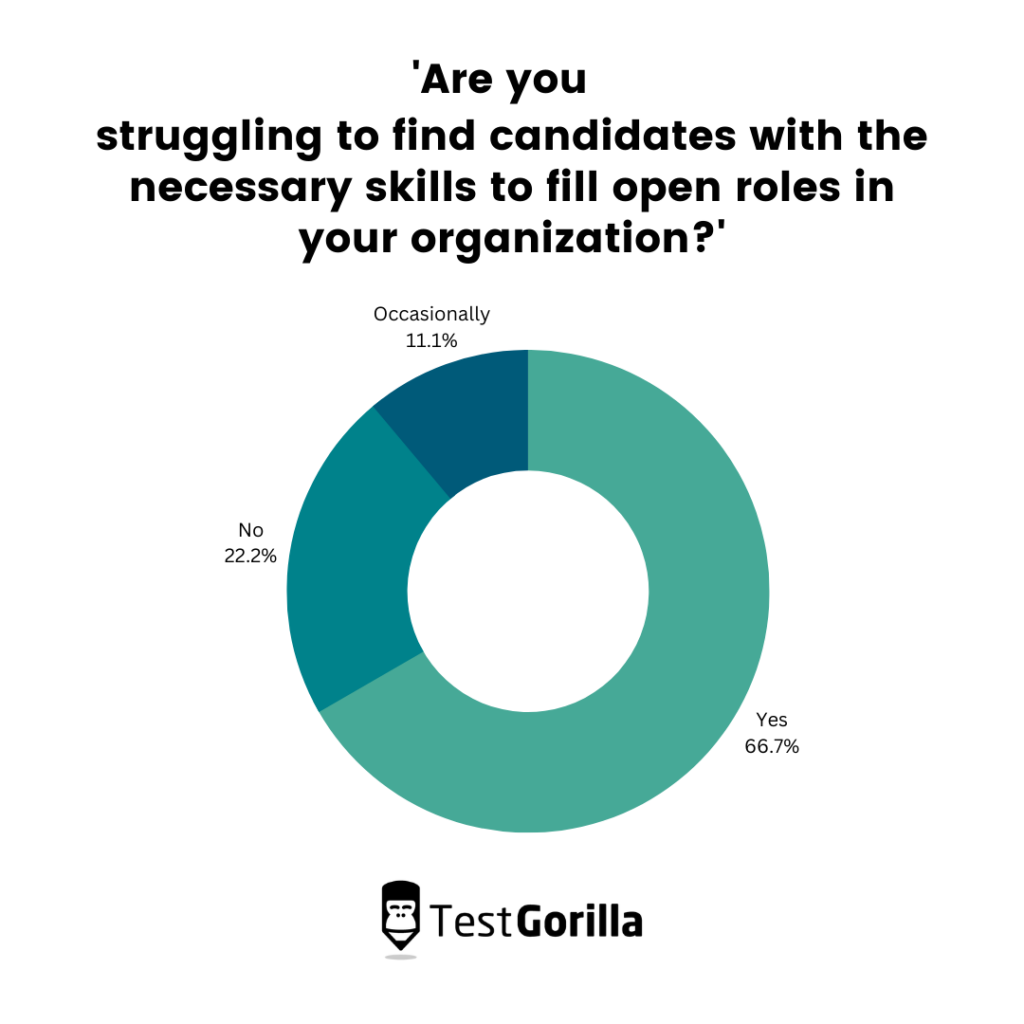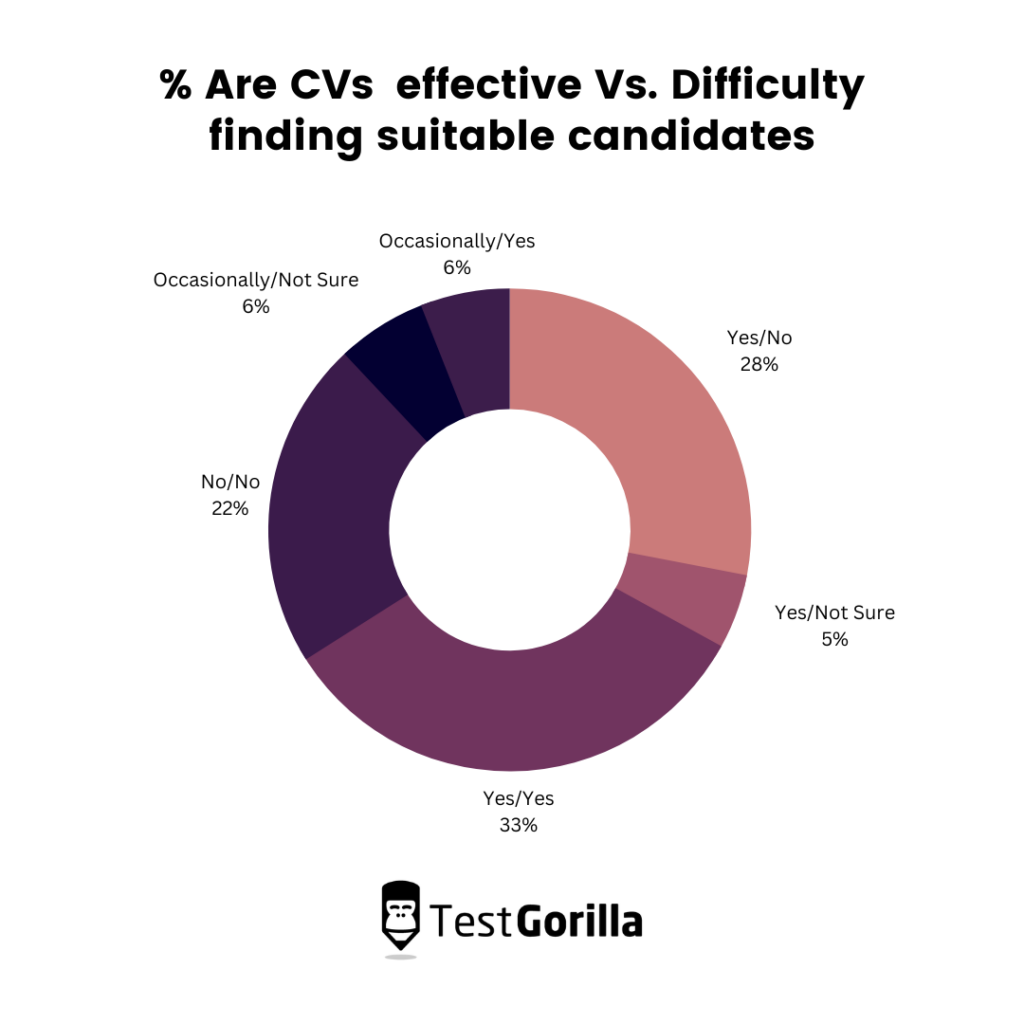Ever heard the one about the purple squirrel?
A recruiter puts out a job advertisement with an exhaustive list of “must-haves,” including educational qualifications and required experience. A few days later, a resume that ticks all the boxes lands in the applicant pool.
The candidate in question aces the interviews and accepts the first salary offer without hesitation. After a week, the open position is closed, the recruiter gets a hefty commission, and the new hire goes on to exceed all expectations.
If this story seems unbelievable, that’s because it is. Unfortunately, purple squirrels don’t exist in the real world, whether in the wild or the workplace. This is why hiring processes focusing on CV screening often face problems.
Of course, as a company built on scientifically sound assessments, we wanted to bring in some data to back up these ideas. So, we asked our audience, and they came back with some interesting insights, which we'll share with you in just a moment. But first...
What is CV screening?
CV screening is the first step in a traditional hiring process. In order to identify whether candidates are a good fit for the role, employers will compare their resumes against the requirements listed in the job description to see how the candidate's education, experience, general qualifications, and stated competencies match up.
The main objective here is to filter down the list of initial applicants so that those who are completely unqualified for the role are removed from the funnel, and the best candidates are moved onto the next stage.
How effective is resume screening anyway?
Let’s start by addressing the elephant in the room. Do executives think CVs are an effective tool for assessing candidates?
We pitched this question to customers across the globe and got some interesting results.
56% said that CVs were effective
38% said that CVs were not effective
6% said that they were unsure about the effectiveness of CVs
If we dig deeper, we find that 58% of the executives who answered negatively were based in Asia. Meanwhile, there was no clear correlation between location and sentiment among those with a favorable view of resumes.
So do these numbers signify that all is well in the hiring world? Are Asian executives receiving lower-quality CVs, or are they just the first to recognize that the traditional approach to evaluating candidates is flawed?
According to the results of another survey we conducted recently on our target audience, there are certainly some significant issues with CV screening.
What are the challenges of CV screening?
In our survey, 56% of respondents admitted that they had trouble identifying whether applicants had the necessary skills for a role based on their resumes alone. It’s a thought echoed by many experts in the field.
1. Resumes are poor predictors of job performance
In a milestone study on successful hiring methods conducted in 1998, the researchers Frank L. Schmidt and John E. Hunter found that education and experience (the main indicators in a CV for candidate evaluation) had only a 0.1 and 0.07 correlation to subsequent job performance. Both of these coefficients are categorized as “unlikely to be useful” by behavioral scientists.
You also have to consider that resumes are essentially marketing documents. They are written to emphasize candidates’ strengths and downplay any gaps in their skill set. An individual may have a wealth of relevant job experience and strong qualifications, but without context, the hiring manager will have to infer what this history says about the person’s competence and general suitability for the role.
2. Resumes are hard to assess objectively
Another 45% of our survey respondents expressed difficulties in ranking candidates’ CVs, with the only quantifiable metric being years of experience in most cases. Considering that these documents vary massively in format and content, the fact that they’re often judged intuitively should be no surprise.
Unfortunately, these gut-level reads introduce unconscious bias into the selection process. Take the contrast effect, for example. A mediocre CV is more likely to be judged favorably if viewed after a poorly written one and will be seen as weak if it is seen after a strong resume. There’s also memory bias, in which older people are more likely to remember positive details about candidates.
Other seemingly irrelevant factors could include whether the assessor is under pressure to make a hiring decision soon or whether they had a good meal before sitting down to pore over CVs.
At a time when many HR professionals are looking to adopt data-driven hiring practices, this inherent subjectivity can impair the effectiveness of a recruitment system.
3. A significant portion of candidates lie on their CV
If you answered yes, then you’re not alone. A survey conducted by FirstAdvantage showed that 37% of tech company applicants submitted inaccurate CVs, and most of these candidates stretched the truth far enough for it to become a severe concern for the hiring manager.
Our data backs up these sentiments. Of the executives we surveyed, 45% stated that they weren’t sure whether the information given in CVs was accurate or not. As every analyst knows, bad data is the biggest threat to sound decision-making.
4. Resumes take time to evaluate
On average, around 118 candidates apply for an open role. That number can leap into the thousands for highly coveted jobs at companies like Google. Meanwhile, data from our 2023 State of Skills-based Hiring report show that hiring managers spend an average of 3.3 minutes reviewing just one resume.
A hiring manager dealing with such a volume of applications will understandably have trouble giving each CV the attention it deserves. As a result, they often scan applications for relevant keywords and filter out submissions that don’t pass basic screening.
Our 2024 report found that 33% of respondents said they received too many CVs to review, which made filtering job applications far more difficult overall.
5. Companies can’t find suitable candidates
With these statistics in mind, let’s return to our earlier survey group, a majority of whom were still convinced that CVs were a critical part of their hiring process. The next question we asked was whether the respondents were currently having trouble finding suitable candidates for open positions.
As you can see from the chart, more than 70% of executives admitted to facing at least some difficulties in this area.
A key finding here was that the largest portion of respondents had previously expressed some measure of confidence in CVs, which suggests that some of these opinions might be based more on the perception of efficacy rather than reality.
The best insights on HR and recruitment, delivered to your inbox.
Biweekly updates. No spam. Unsubscribe any time.
How things need to change
At TestGorilla, we believe that while an applicant’s work history and academic accomplishments are factors to consider, real-world competencies define how well a candidate will perform in any given role.
Although it might take a while for the message to catch on in certain markets, hiring managers in fast-moving industries have already started to make the necessary adjustments to their candidate-evaluation processes. A recent tech industry survey showed that 57% of recruiters are willing to remove CVs altogether in favor of a skills-based approach.
So what can companies that make the switch expect from their reshaped recruitment process?
A much deeper applicant pool, for one, with keyword tracking and CV-based filtering out the door, vacant positions are opened up to a world of untapped talent. Speed is, of course, another big advantage here. Companies who opt for pre-employment testing can reduce their time-to-hire by up to 80%. By evaluating these candidates on the basis of their skills rather than their CVs, you can ensure the person you select can start performing in their given role from day one.
Related posts
You've scrolled this far
Why not try TestGorilla for free, and see what happens when you put skills first.


